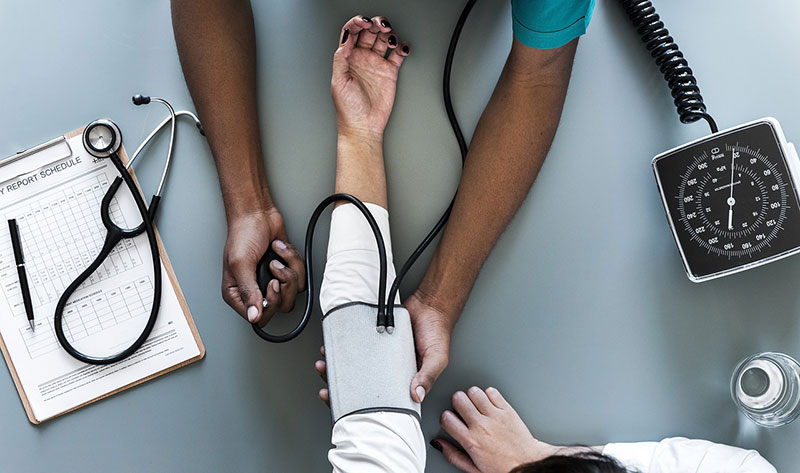Keeping your Drivers safe inside the cab - Idealease Safety Bulletin March 27,2020
Read and share the latest Safety Bulletin, "Keeping your Drivers Safe Inside the Cab", courtesy of Idealease Truck Leasing and Rental.
VIEW AND DOWNLOAD the full March 27th Edition and SIGN UP to receive these fleet safety tips directly to your email inbox!
In this issue find details on the following:
With the Coronavirus COVID-19 pandemic, it has never been more important to clean and sanitize trucks for the safety of employees and customers. The virus can stay on a hard surface for up to three days. There have been questions regarding sanitizing sleeper mattresses. There are ways to sanitize a mattress for the virus; however, they are impractical for Idealease, such as steam cleaning or UV-rays.
The best recommendation to put the mattress in a disposable plastic bag and change the bag if you switch drivers in a unit. Twin mattress bags are available for purchase from moving companies that you can use and then throw away.
1. What’s the best way to clean your vehicle to reduce the existence of coronavirus?
- Employees cleaning the unit should wear rubber/nitrile gloves and safety glasses. Gloves must be discarded after each use!
- Alcohol works best for smaller knobs and handles - a quick wipe cleans germs and fingerprints
- Soap and water work best on the seat and hard surfaces - soap will break down the oil that surrounds the coronavirus
- Do not splash water on electrical components of the dash or steering wheel. Stay away from bleach solutions for interior materials and fabrics.
Review this comprehensive list from the EPA on the most effective cleaners, bleach-free sprays and wipes.
What not to use: any type of bleach or hydrogen peroxide on the unit’s interior. Both chemicals will put an end to the coronavirus germs, but they will also cause damage to the vinyl and plastic materials/finishes used in trucks today.
2. Guide: tell the difference between your existing conditions and COVID-19 Allergies
Allergies
• Shortness of breath
• Fever (rare and above 100 degrees)
• Dry cough
• Gradual onset (two to 14 days after onset)
• Sometimes headache
• Sometimes aches and pains
• Mild sneezing
• Sometimes fatigue, but it’s not predominate like the flu
• Diarrhea is rare
• Runny nose
• Sneezing
• Red, swollen eyes
• Itchy eyes
• Itchy nose
• Tickly throat
Cold
• Runny nose
• Sneezing
• Sore throat
• Aches and pains
• Mild, dry cough
• Rarely a fever
Strep
• Sore throat
• Painful swallowing
• Fever
Flu
• Fever is common
• Dry cough
• Quick onset
• Headache
• Sore throat
• Fatigue
• Sometimes a runny nose
• Sometimes diarrhea
New coronavirus, COVID-19
• Shortness of breath
• Fever (above 100 degrees)
• Dry cough
• Gradual onset (two to 14 days after onset)
• Sometimes headache
• Sometimes aches and pains
• Mild sneezing
• Sometimes fatigue, but it’s not predominate like the flu
• Diarrhea is rare
• Loss of smell and taste
 When to Seek Medical Attention
When to Seek Medical Attention
If you develop emergency warning signs for COVID-19 get medical attention immediately. Emergency warning signs* include:
- Trouble breathing
- Persistent pain or pressure in the chest
- New confusion or inability to arouse
- Bluish lips or face
*This list is not all inclusive. Please consult your medical provider for any other symptoms that are severe or concerning.
3. FMCSA Expands COVID-19 Emergency Declaration
The Federal Motor Carrier Safety Administration has added to the list of activities that qualify for an emergency exemption from certain safety regulations for drivers assisting with the nationwide coronavirus (COVID-19) response.
In a new set of Frequently Asked Questions issued on March 25, 2020, the agency clarified that the March 13 emergency declaration may apply to:
- Wood pulp intended for use in producing essential items (e.g., to be used in medical or sanitation supplies, groceries, etc.);
- Raw materials used to manufacture bleach, disinfectants, hand sanitizers, and similar items;
- Food packaging materials, such as produce containers; and
- Livestock feed and fertilizer being used to produce food.
- Pet food is NOT covered by the exemption, the FMCSA says. The agency earlier clarified that livestock qualifies for the exemption, as do haulers of household and medical waste.
** The above items only qualify if they are being transported as "precursor" materials to be used for products and services covered under the emergency exemption.
Drivers eligible for the exemption are not required to comply with hours of service, driver qualification, vehicle inspection, and other FMCSA safety rules. Some regulations must still be followed, however, including those for CDL licensing, drug/alcohol testing, and insurance (click the links for additional guidance on how the rules apply during the COVID-19 emergency).
To qualify for the exemption, drivers must be "providing direct assistance in support of relief efforts related to the COVID-19 outbreaks…. Direct assistance means transportation and other relief services provided by a motor carrier or its driver(s) incident to the immediate restoration of essential services (such as medical care) or essential supplies (such as food and fuel) related to COVID-19 outbreaks during the emergency." Routine commercial deliveries are not eligible.
The emergency exemption is currently in place until April 12, 2020, or until the emergency is declared to be at an end, whichever occurs first.
4. International Roadcheck Postponed Due to Coronavirus COVID-19
International Roadcheck, an annual inspection event hosted by the Commercial Vehicle Safety Alliance (CVSA), has been postponed due to the coronavirus (COVID-19) outbreak.
Roadcheck was scheduled for May 5-7 throughout the United States, Canada, and Mexico.
Inspections still taking place COVID-19 has forced the FMCSA to temporarily waive federal rules related to everything from drug and alcohol testing to hours of service. But CVSA is reminding motor carriers that roadside safety inspections and traffic enforcement will continue daily as departmental health and safety policies and procedures allow.
Other events remain scheduled Roadcheck is CVSA's only public enforcement initiative scheduled for 2020 that has been postponed. Still on the calendar is the Operation Safe Driver Week, scheduled for July 12-18, and Brake Safety Week, set for August 23-29
Download the full bulletin for complete details or click here to sign up. Don't forget to register for our weekly Idealease Elevate your Driver's Performance Newsletter.

